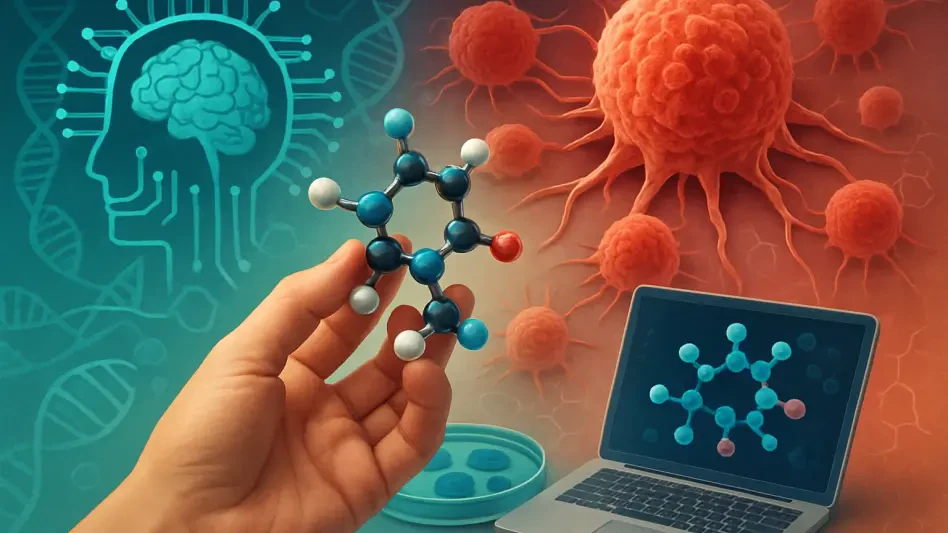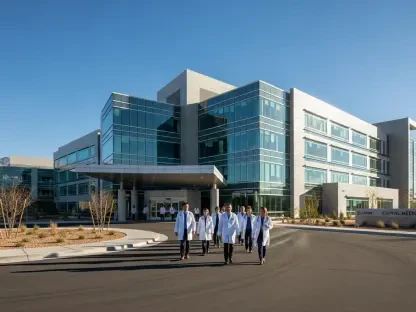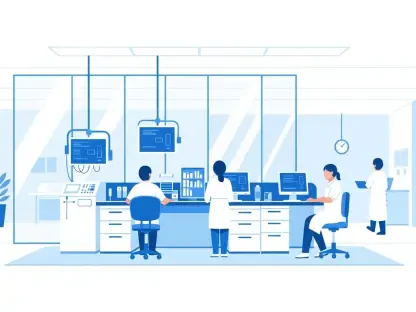Today, we’re thrilled to sit down with Faisal Zain, a renowned healthcare expert with a deep focus on medical technology. With years of experience in the manufacturing of cutting-edge medical devices for diagnostics and treatment, Faisal has been at the forefront of innovation in the field. In this interview, we explore the exciting advancements in biotech, particularly the transformative potential of AI in drug discovery, the development of novel cancer therapies, strategic industry collaborations, and the broader trends shaping the future of healthcare innovation.
How do you see the role of AI transforming drug discovery in the biotech sector, especially for companies developing targeted therapies?
AI is revolutionizing drug discovery by accelerating the process and improving precision. It allows companies to analyze massive datasets to identify potential drug candidates much faster than traditional methods. For instance, in the case of targeted therapies like those for cancer, AI can predict how specific molecules will interact with proteins or pathways, reducing the trial-and-error phase. It also helps in designing drugs with better safety profiles by avoiding off-target effects. This kind of technology is a game-changer, especially for startups that need to move quickly with limited resources.
What are some of the most promising advancements in cancer treatment that you’ve observed recently, particularly in terms of novel mechanisms or targets?
Cancer treatment is seeing incredible progress with therapies that go beyond traditional chemotherapy. I’m particularly excited about small molecule inhibitors that target specific proteins driving cancer growth, like HER2 or CDK2/4. There’s also a lot of potential in allosteric inhibitors and antibody-drug conjugates that deliver toxic payloads directly to tumor cells. These approaches minimize damage to healthy tissue, which is a huge step forward. The focus on precision medicine, tailoring treatments to a patient’s genetic profile, is also opening new doors for better outcomes.
Can you explain the importance of selectivity in drug design, especially when it comes to reducing toxicity in therapies for diseases like breast cancer?
Selectivity in drug design is critical because many proteins involved in disease are closely related to others that play essential roles in normal cell function. For breast cancer therapies targeting HER2, for example, avoiding interaction with a similar protein like EGFR is key to preventing toxic side effects. When a drug is selective, it focuses only on the disease-causing target, reducing collateral damage to healthy cells. This not only improves patient safety but also allows for higher doses if needed, potentially increasing effectiveness.
How do strategic partnerships between biotech companies enhance the development of new treatments, and what benefits do they bring to patients?
Partnerships are invaluable in biotech because they pool expertise, resources, and technologies to tackle complex challenges. When two companies collaborate, like combining a novel inhibitor with a complementary drug, they can explore synergies that might lead to better efficacy or broader applications. For patients, this often means access to more comprehensive treatments that address multiple aspects of a disease. It also speeds up the development timeline, getting therapies to market faster, which is critical for life-threatening conditions like cancer.
With significant funding flowing into biotech startups, what do you think are the key factors investors are looking for in this space?
Investors are primarily looking for innovation with a clear path to clinical impact. They want to see a strong scientific foundation, whether it’s a novel target or a unique technology platform like AI-driven discovery. A solid management team with experience in navigating clinical trials and regulatory hurdles is also crucial. Additionally, there’s a focus on scalability—can this solution address a large unmet need? Finally, early data, even from preclinical or Phase 1 studies, that shows promise in terms of safety and efficacy can be a major draw for funding.
How do you envision the future of personalized medicine, especially with the integration of technologies like AI and gene editing?
Personalized medicine is heading toward a future where treatments are almost bespoke for each patient. AI will play a huge role in analyzing genetic and clinical data to predict which therapies will work best for an individual. Combined with gene editing tools like CRISPR, we could correct mutations directly or engineer therapies tailored to a patient’s specific disease profile. This integration could drastically improve outcomes for complex diseases like cancer or rare genetic disorders. The challenge will be making these solutions accessible and affordable, but the potential to transform healthcare is immense.
What is your forecast for the biotech industry over the next decade, particularly in terms of balancing innovation with accessibility?
I believe the next decade will see biotech innovation soar with breakthroughs in AI, gene therapies, and precision medicine becoming more mainstream. We’ll likely see drugs and treatments that are far more effective for smaller, targeted patient groups. However, the industry will face significant pressure to balance this innovation with accessibility. High development costs could keep cutting-edge therapies out of reach for many unless we see reforms in pricing models or increased collaboration between public and private sectors. I’m optimistic, though, that advancements in scalable technologies will help bridge that gap, making life-changing treatments available to more people globally.









